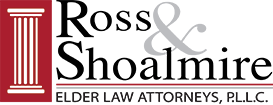You Can’t Inherit Debt in Texas or Arkansas, But Some Liabilities Don’t Go Away During Probate
Few people, even those who worked hard and saved responsibly, die without debt.
In Arkansas and Texas, different rules govern debt after death. Some outstanding debts may be dismissed without any opportunity for creditors to collect, while others may be filed as claims against the estate.
Understanding what you may owe—and what you should never even consider repaying—can be challenging. Fortunately, you don’t have to take chances with your inheritance. Ross & Shoalmire’s experienced probate and guardianship lawyers have spent years helping Texarkana protect their peace of mind. Read more to learn about which debts survive after death, or contact us today to schedule your initial consultation.
A Guide to Death, Debt, and Probate
Debts are almost never passed down to a decedent’s heirs and beneficiaries.
However, under limited circumstances, an heir could be responsible for unpaid debt on certain types of shared or jointly-owned assets.
How Death Affects Debt
If somebody passes away with debt, there’s a good chance any money they owe will have to be repaid from whichever assets the deceased person—sometimes termed the “decedent”—left behind. These assets form their estate, which may be comprised of:
- A home
- Motor vehicles
- Bank accounts
- Art collections
- Personal possessions
- Any other asset subject to probate
However, estates aren’t comprised exclusively of assets—many have liabilities. These liabilities include debts and other claims and judgments against the deceased person or their estate. Many of these liabilities must be addressed during probate, though they need not always be paid.
What Happens to Debt During Probate
Probate is a court-monitored process of estate administration.
In Texas and in Arkansas, an estate will typically be subject to full probate unless it falls into one or more of the following categories:
- The estate is small enough to qualify for “small estate succession."
The estate is being probated in another jurisdiction, with only a limited number of assets subject to Texas or Arkansas probate. This is termed “ancillary probate.” - The deceased person transferred all their assets into a trust or created an estate plan intended to circumvent probate.
If an estate is subject to probate, the estate’s executor must present an original and valid copy of the decedent’s last will and testament to the probate court clerk in the county in which the deceased person passed away. So long as the will can be verified, probate may begin.
Probate, once begun, usually consists of the following steps:
- The executor initiates probate.
- The executor sends notice of probate proceedings to all interested parties. Here, “interested parties” include the decedent’s family members, the decedent’s heirs, and the decedent’s creditors.
- The executor must locate and inventory all of the decedent’s assets not accounted for by a trust or other probate-avoidance instrument. This step is sometimes termed the “marshaling and managing” of assets.
- Before distributing inheritances, the executor must monitor and respond to any claims submitted by creditors. However, creditor claims are not always valid, which means that executors must do their due diligence to weed out any filed in bad faith.
- After creditor claims have been paid, the executor may use the estate’s remaining assets to distribute inheritances.
Paying debts is an essential and unavoidable step in probate. It is necessary, and it must happen before heirs receive their inheritances.
Debts That Do Go Away
If you’re the heir to a Texas or Arkansas estate, you probably won’t be responsible for certain types of estate-related debt. This is true even if you’re the decedent’s surviving spouse or their only living child.
In general, the following types of claims made against an estate do not have to be paid:
- Any debts owed by the estate, and which must therefore be paid by the executor during probate
- Any debts which the estate cannot pay or which leave the estate insolvent
- Debts claimed by creditors who have not followed the right steps to secure a claim
- Debts that fall outside of the statute of limitations
- Debts that the creditor agrees to settle for a lower amount than the sum outstanding
Valid debts may be taken from the estate or its assets, but they are rarely the responsibility of heirs.
And Debts That Don’t
Heirs and beneficiaries are usually only liable for an estate’s debt or debts if they share liabilities with the deceased person. For example, you may be required to share debt with the decedent if:
- You co-signed a loan or guaranteed credit for the deceased person
- You’re the joint account holder on a credit card shared with the decedent
- You’re both an estate heir and estate executor, meaning that you are legally liable for the repayment of estate debts using estate assets that may or may not form the basis of your inheritance
Your state’s unique laws could affect what debts you did or didn’t share with the deceased.
Texas, for instance, is a community property state. In community property states, each spouse holds a co-equal share in most assets acquired after marriage (unless they waived such rights in a pre- or postnuptial agreement). Just as assets are shared, so too are debts—meaning that you could be liable for certain types of debt incurred by your spouse, even if they relate to accounts you did not use or assets that were not titled to your name.

